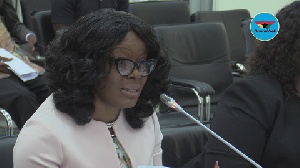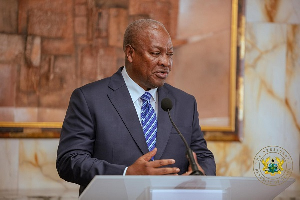The Eastern Regional Minister and Member of Parliament (MP) for Nkawkaw, Mr Eric Kwakye Daafour, has assured that Parliament would pass the Right to Information (RTI) Bill into law before it rises in December this year.
The Regional Minister was responding to a questioner at the regional launching of the Star Ghana Foundation at Koforidua.
He explained that currently, the Bill was at the consideration state and Parliament was considering some clauses, which if care was not taken, could create difficulties in the implementation of the law.
He urged Ghanaians to be inquisitive and aspire to know what was going on to be able to actively take part in governance.
Mr Daafour said it was government’s hope that the creation of more districts and regions could help speed up the development of the country and increase the participation of the people in governance.
Dr Esther Offei- Aboagye, the outgoing Chair person of the Steering Committee of the Star Ghana Foundation, urged civil society organizations to up their game as spokespersons of the people and the politically exclusion .
He said the citizens were looking up to civil society organizations to air their views and explained that this was why the Star Ghana Foundation was established to raise local funding to support civil society activities.
Dr Offei-Aboagye urged traditional councils to be pro-active and when necessary invite office holders to brief them on what was happening in government.
Baafour Tutu Nyantekyi-Boateng, Krontihene of the New Juaben Traditional Area, has called for the institution of systematic structure to promote inclusion and citizens’ participation in politics.
He complained about efforts being made to exclude traditional authorities from the local governance system by the political parties’ direct appointment of chiefs to the District, Municipal and Metropolitan Assemblies instead of requesting the traditional councils to nominate a member of the councils to the assemblies who would be responsible to the council.
General News of Friday, 23 November 2018
Source: ghananewsagency.org













